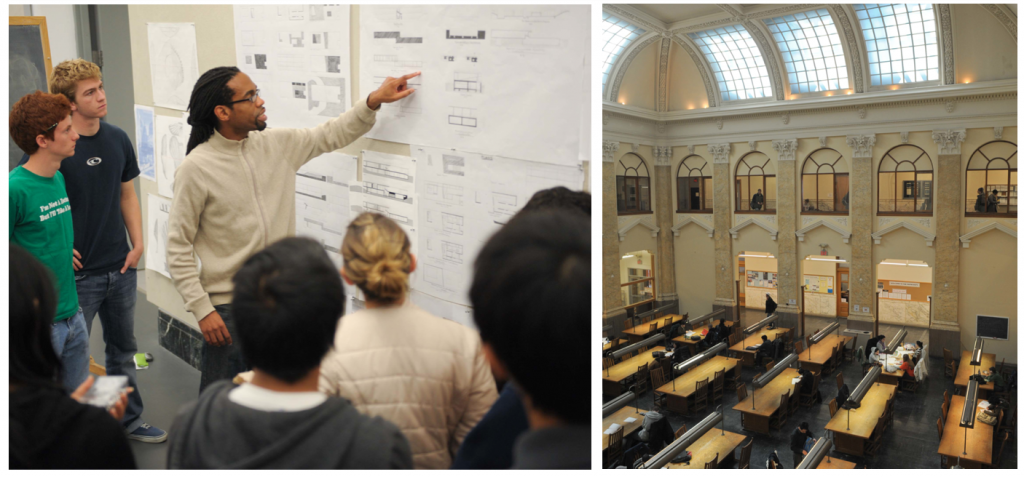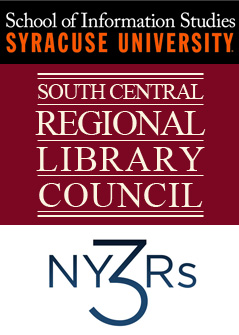[Today, and over the next two days, I will be posting ideas related to Reinventing the Academic Library focusing on public services in supporting research-oriented universities. I believe these ideas have currency in different types of libraries, but for this series I wanted to be more tightly focused. I begin this series with some thoughts on a key mission of research libraries: scholarly communication. It will be followed by a series of mini-proposals for new services. The goal is not some mass implementation of specific projects, but rather to stir up conversation around the mission of the academic library.]

Being Quite Prolific
A faculty colleague at another institution remarked that I was “quite prolific.” My first reaction was to disagree. I am surrounded by highly productive colleagues that regularly speak, publish books and journal articles, and push forward on grants so I may be used to some intimidating productivity. However, and I apologize in advance for the bragging, I looked at my year, and I can’t disagree. In the past year I have:
- Published an audio book based on a previous self published book (Expect More)
- Published a new book (Boring Patient) and an accompanying audio book
- Released Expect More as a free download (leading to over 7 thousand downloads)
- Signed a new book contract with MIT Press
- Taught a MOOC for 600 people
- Helped organize an intensive continuing education program for 10 states
- Won a new IMLS grant
- Gave 10 presentations including 1 international
Oh, and that was through ablative chemotherapy and a bone marrow transplant and on top of blogging and my normal teaching load (but not my service load – bless you fellow faculty). To be sure I am pushing out a lot of blog posts this week to clear the decks for major work on my new book (more on that Friday).
So, not bad. However, if you begin to poke at that record something very interesting emerges. All the books published (audio and written) were self-published. Of those 10 presentations, 6 were given online, and only 2 in an academic venue. Don’t get me wrong. Each of these took time and effort, but not the same effort of a journal publication. Also, the production length of each is MUCH shorter than traditional academic publication.
The Audio books were produced in three weeks. The Boring Patient was drafted in two months. The presentations were normally put together in a few hours a week before the event. Compare this to say the production of The Atlas of New Librarianship. It took over a year to write, and then 13 months to produce through MIT Press (from submission of the manuscript to printing).
Also, the nature of the work is very different. The ideas in these pieces are often formative. That is, I am putting ideas out for consideration and discussion at a much earlier stage. In essence, my presentations are what I am thinking about now, not summative presentations on previous work. Rather than finishing a work and then submitting it to peer review, I am throwing out ideas for peer discussion, and then adapting and adopting.
My point here is that while in numbers it looks like I am more productive, what is really happening is that my production is more representative of the entire scholarly process, not just finished research. Those presentations turn into blog posts, turn into book chapters, turn into grant proposals. Instead of just publishing the chapters, you are seeing all of it.
Now a good part of this is a factor of being a tenured full professor. I have the liberty to publish in alternative venues than peer reviewed journals. I have the liberty to experiment with self-publishing. But a good part of it is a new affordance of technology – scholarly conversations can happen online in fast forward.
Scholarship in Fast Forward
This became very obvious in a recent interchange between Lane Wilkinson and nina de jesus on libraries, institutionalized oppression, and the Age of Enlightenment. What struck me about this discussion was: the topic, the depth of reasoning in the pieces, and the speed of the analysis and conversation. I could easily see these pieces published sequentially in a scholarly journal – one reacting to the other. Yet this process would have taken months, if not years of submission, publication, submission, publication. Instead it was happening on blogs linked by twitter in days. Lane is frankly impressive this way. Just take a look at the depth he goes into with ACRL’s proposed information literacy standards framework. This level of feedback and broadcast thought used to be reserved for conference cycles, not daily cycles.
It would be simplistic to say that technology is accelerating the pace of the scholarly discourse. There is still a huge role for peer review and formal publishing, and those take time, resources, and a hell of a lot of effort. I think we are seeing technology change cultural norms of scholarship, and dip deeper and deeper into the academic foment – the dynamic process where hypothesis, studies, agenda, and outright hunches are generated before formalization, execution, and review.
This push into process, and making the supposed transparency of the research process a reality, is exciting. It also brings with it fundamental questions for scholars and librarians alike (not that those are mutually exclusive groups). There is the obvious question of metrics and measuring impact as well as validity. There is also the role the library plays in capturing and preserving that foment. Do we need a right to be forgotten in scholarly chatter and blogging? Librarians have long been at the birth of ideas (feeding researchers through reference and resources) and at the entombment of research (gathering and fixing research in static documents). Now we are presented with the vast rich chaos of the interim which to me is a fundamental area of investigation for librarians.
Just as school librarians have taken a once passive role as keeper of books & supporters of curriculum, and transformed it into an active role owning (and teaching) information literacy, so too does the advancement of scholarly communication present a huge opportunity to academic librarians. In addition to teaching people how to access and assess the scholarly record, we should be shaping the very process of scholarly communication. Instead of advocating for open access and then creating silos of document morgues called institutional repositories, we should be building cross-institutional curated publishing platforms hand in hand with disciplinary scholars.
What’s Coming Next
To follow up these thoughts I’ve put together a series of mini-service proposals that talk about how we might reshape services in libraries supporting research intensive universities. These are intended to “get the creative juices flowing,” and getting folks to think differently about academic libraries. They are more sketches than finished pieces.
It has been my experience that aside from selling librarians on these ideas, it is equally challenging to convince those who oversee and use the library. A student of mine who was directing a library, saw the library as needing a major update, and a greater focus on service and the undergraduate experience. She was shocked when she did focus groups with students, asking them what they thought of the library. “It’s fine.” “It’s a great place to study.” When asked what else they needed? “Not much…more outlets.”
The problem she encountered is not that people (students, faculty) were dissatisfied with the library, they simply expected too little from it. In many cases, faculty and students simply discounted the library, because they didn’t see how it could get better. In fact they had never even thought of HOW it could be better. This is not surprising as it is not their job to see how we can get better- it is our job as librarians to dream bigger and push our communities to want more in order to accomplish more. These mini-proposals are put together to start that conversation.
I leave you with one last thought. These proposals do not go into detail what libraries are already doing nor do they cover the range of potential services (data curation, digital humanities support, creating assessment centers, hosting community/university incubators). That is not a value judgement. However, there proposals, or any new services, can no longer be added on top of what we are already doing. The academic library of the future is not simply the library of yesterday PLUS. We must take a serious and hard look at what we no longer need to do.

